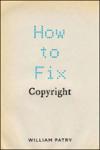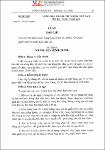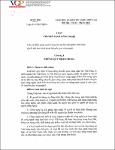Search
Search Results
Hệ thống 13 tiêu chuẩn thẩm định giá Việt Nam và quốc tế |
Luật thuế thu nhập doanh nghiệp 2008 (sửa đổi 2013) |
This book provides the first comprehensive international coverage of key issues in mandatory reporting of child abuse and neglect. The book draws on a collection of the foremost scholars in the field, as well as clinicians and practice-based experts, to explore the nature, history, impact and justifiability of mandatory reporting laws, their optimal form, legal and conceptual issues, and practical issues and challenges for reporters, professional educators and governments. Key issues in non-Western nations are also explored briefly to assess the potential of socio-legal responses sex trafficking, forced child labour and child marriage. The book is of particular value to policy makers, educators and opinion leaders in government departments dealing with children, and to professionals... |
This volume addresses the conditions allowing the transformation of specific childrens rights into capabilities in settings as different as children’s parliaments, organized leisure activities, contexts of vulnerability, children in care. It addresses theoretical questions linked to children’s agency and reflexivity, education, the life cycle perspective, child participation, evolving capabilities and citizenship. The volume highlights important issues that have to be taken into account for the implementation of human rights and the development of peoples’ capabilities. The focus on children’s capabilities along a rights-based approach is an inspiring perspective that researchers and practitioners in the field of human rights would like to deepen. |
These are the key questions William Patry addresses in How to Fix Copyright. We all share the goals of increasing creative works, ensuring authors can make a decent living, furthering culture and competitiveness and ensuring that knowledge is widely shared, but what role does copyright law actually play in making these things come true in the real world? Simply believing in lofty goals isn't enough. If we want our goals to come true, we must go beyond believing in them; we must ensure they come true, through empirical testing and adjustment. |








